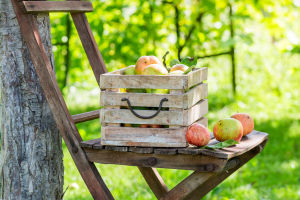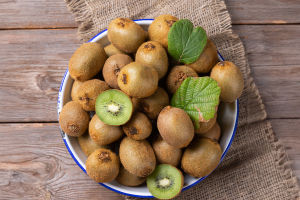Tired of buying fresh fruits only to find them soft, spotted, or mushy a few days later? You're not alone. Proper fruit storage can make the difference between crisp, juicy apples and sad, shriveled ones.
In this article, we'll break down how to store different types of fruits correctly, what mistakes to avoid, and how to make your produce last longer—saving both your money and your meals!
Why Proper Fruit Storage Matters
Fruits are delicate. Once harvested, they begin to lose moisture, flavor, and nutrients. Improper storage speeds up this process, leading to early spoilage and food waste. According to the Food and Agriculture Organization (FAO), nearly half of all fruits and vegetables are wasted globally, much of it due to poor storage.
By learning just a few simple techniques, you can keep fruits at their peak freshness longer, avoid unnecessary waste, and enjoy better taste and nutrition in every bite.
Know Which Fruits Should Stay at Room Temperature
Not all fruits belong in the fridge. Some do better at room temperature, especially before they're ripe. Common fruits that should be kept on the counter include:
• Bananas
• Mangoes
• Papayas
• Pineapples
• Avocados
• Kiwis (until ripe)
• Citrus fruits like lemons, limes, and oranges (short term)
These fruits continue to ripen after being picked. Keeping them in the fridge too soon can interrupt the natural ripening process and result in uneven flavor and texture.
Tip: Once fully ripe, these fruits can be moved to the fridge to slow further ripening and extend freshness by several days.
Refrigerator-Friendly Fruits and Best Practices
Some fruits benefit from cooler temperatures and should be stored in the refrigerator right after purchase or ripening. These include:
• Berries (strawberries, blueberries, raspberries)
• Grapes
• Cherries
• Apples
• Pears (once ripe)
• Plums
• Figs
To store fruits in the fridge effectively:
• Use breathable containers or perforated produce bags. This reduces moisture buildup that causes mold.
• Keep them dry. Moisture encourages rot, especially in berries.
• Don't wash before storing. Wash fruits only before eating to prevent excess humidity and spoilage.
The Role of Ethylene Gas: What to Separate
Some fruits produce ethylene gas, a natural plant hormone that speeds up ripening. While this is helpful for getting green bananas to ripen, it is not good news for nearby produce.
High ethylene producers include:
• Apples
• Bananas
• Mangoes
• Avocados
• Tomatoes
• Pears
• Kiwis
Low ethylene-sensitive fruits like berries, citrus fruits, and grapes should be stored away from these gas producers.
Tip: Want to ripen something faster? Place it in a paper bag with a banana or apple for a day or two. But once it's ripe—separate them!
How to Store Cut or Peeled Fruits
Sliced fruit is highly perishable and needs proper care:
• Always refrigerate after cutting.
• Use airtight containers to minimize exposure to oxygen.
• Add lemon juice to apples, bananas, or pears to slow browning.
• Eat within 1–3 days for the best taste and safety.
Research from the U.S. Department of Agriculture (USDA) warns that cut fruits kept at room temperature for more than two hours may no longer be safe to eat due to bacterial growth.
Freezing Fruits: A Smart Long-Term Option
If you've overbought or want to preserve ripe fruits, freezing is your best friend:
• Wash, peel, and slice the fruit first.
• Flash freeze pieces on a baking sheet, then store in zip-top freezer bags.
• Great for bananas, berries, mangoes, and pineapple.
Frozen fruits work wonderfully in smoothies, baking, or oatmeal. They can last for 6 to 12 months in the freezer without losing much of their nutrition.
Smart Storage Tools and Tips
A few smart storage habits can go a long way:
• Use fruit drawers in your fridge—they maintain ideal humidity.
• Separate fruits from vegetables—many veggies (like broccoli or carrots) release moisture that can spoil fruit faster.
• Label your fruits with the date of purchase to keep track of age.
• Rotate regularly. Place older fruits in front and newer ones behind.
Storage Myths That Can Ruin Your Fruit
Let's bust a few common myths:
• Myth: All fruits go in the fridge. Truth: Some fruits lose texture and flavor when chilled too early.
• Myth: Plastic wrap helps everything. Truth: It can trap moisture and promote mold.
• Myth: Washing fruit right after buying is always good. Truth: Washing too early can reduce shelf life.
Sticking to science-backed methods rather than popular myths will keep your produce at its best.
Make It a Habit, Not a Hassle
Fruit storage doesn't have to be complicated. Once you understand what each fruit needs—whether it's room to ripen, cool temperatures, or separation from ethylene—it becomes second nature. Small changes in how you store your fruit can lead to better taste, longer freshness, and less waste.
Let's Keep It Fresh Together!
Now that you've got the knowledge, it's time to put it into action. Try sorting your fruits today based on their storage needs, and you'll notice the difference within days.
What fruit do you often find spoiled too quickly? Share your storage questions or tips—together, we can make every bite count and keep freshness alive!


